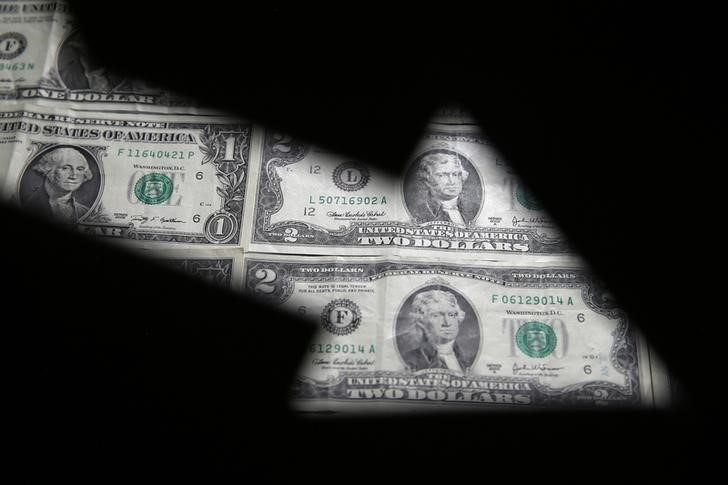Two 59%+ winners, four above 25% in Aug – How this AI model keeps picking winners
By Peter Nurse
Investing.com - The dollar traded largely unchanged in Europe early Thursday, stabilizing after Wednesday’s weakness following Fed chair Jerome Powell insistence that it was too soon to withdraw the central bank’s hefty monetary support for the economy.
At 2 AM ET (0600 GMT), the Dollar Index, which tracks the greenback against a basket of six other currencies, traded marginally lower at 92.350, falling back from the high of 92.832 seen earlier this week.
USD/JPY dropped 0.1% to 109.88, EUR/USD was marginally lower at 1.1832, having climbed from close to its three-month low of 1.1772, GBP/USD slipped slightly to 1.3851, while the risk-sensitive AUD/USD fell 0.2% to 0.7463.
Soaring U.S. inflation, with consumer prices rising by 5.4% in June and producer prices by 7.3%, has prompted some FOMC members to suggest the time was coming for the U.S. central bank to rein in its massive bond-buying program.
However, Powell once again shrugged off the spike in U.S. inflation as only temporary, saying in testimony before Congress on Wednesday that it would be a mistake to act prematurely and that economic conditions for tapering bond buying was "still a ways off".
“Powell sees the next six months as critical for inflation, to see if [it] falls back like they expect,” said Kathy Lien, an analyst at BK Asset Management, in a note. “The Fed is trailing behind the New Zealand, Canadian and the U.K. central banks, and the worry is it will fall further behind on the curve and be forced to tighten more aggressively in the future.”
The Federal Reserve chairman returns to Capitol Hill later on Thursday for further testimony, and traders will be looking to see if he moderates his language over tapering at all.
Ahead of his latest appearance comes the release of the weekly initial jobless claims data, the most current indication of the strength of the U.S. labor market - a key focus for the Fed given the market is still 7.5 million jobs short of its level before the pandemic erupted in early 2020.
Still, dollar losses have been limited amid concerns over spiking Covid-19 cases, particularly in southwest Asia but also in the U.S. and the U.K., even with England set to fully reopen next week.
Elsewhere, USD/CNY fell 0.1% to 6.4617 after China's economy grew more slowly than expected in the second quarter, with GDP rising 7.9% from a year earlier, missing expectations for a rise of 8.1%.
USD/CAD rose 0.2% to 1.2532 the day after the Bank of Canada dialed back its bond-buying program, saying at its policy meeting that it would cut its weekly net purchases of government bonds to a target of C$2 billion ($1.6 billion) from C$3 billion.
USD/TRY was largely unchanged at 8.5809, after the lira strengthened overnight as Turkey’s central bank kept its benchmark interest rate unchanged for a fourth month. It also largely ruled out a cut in the summer, warning of “possible volatility” in inflation as the economy reopens.
